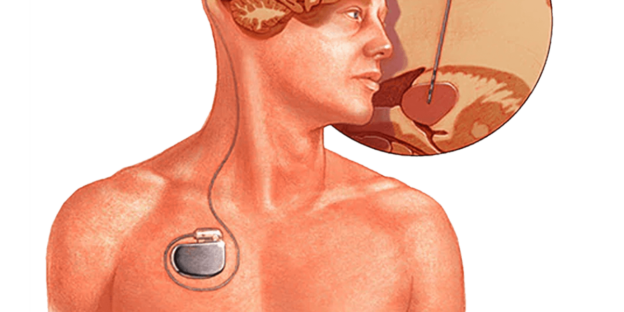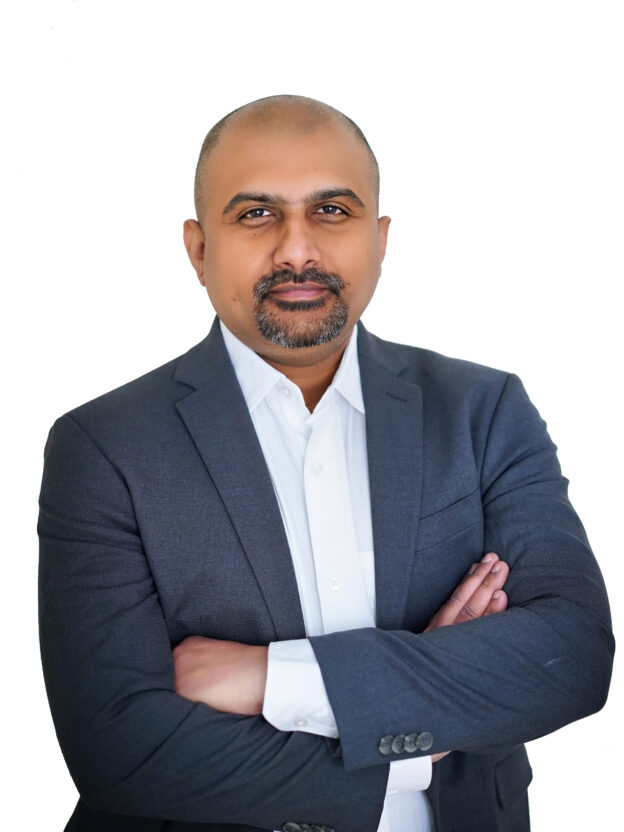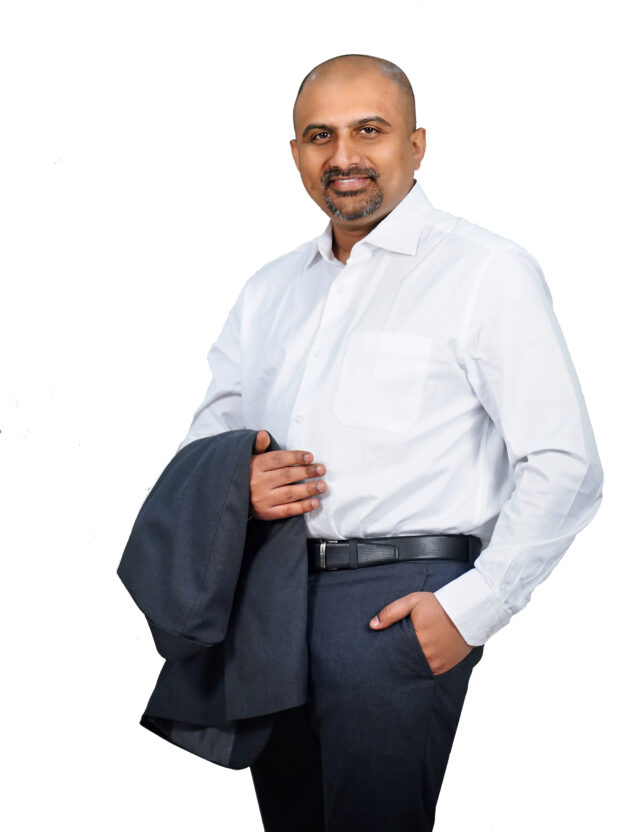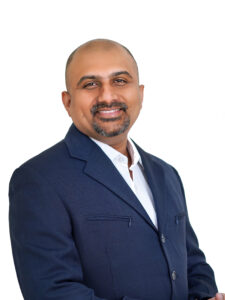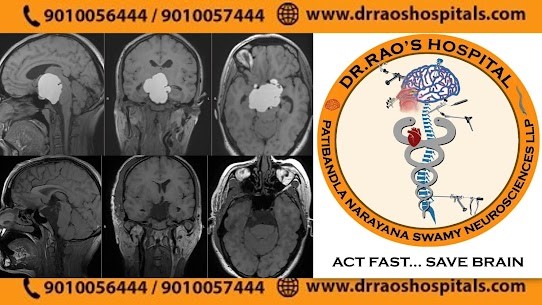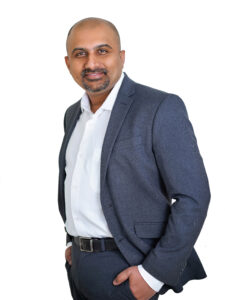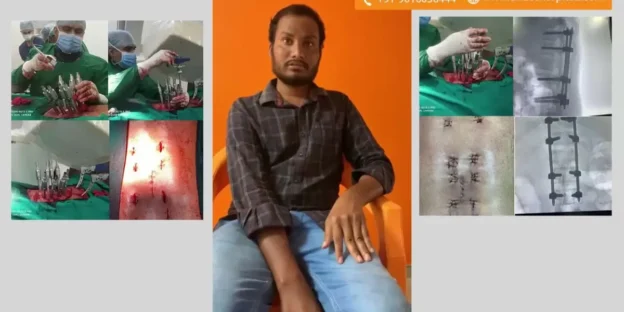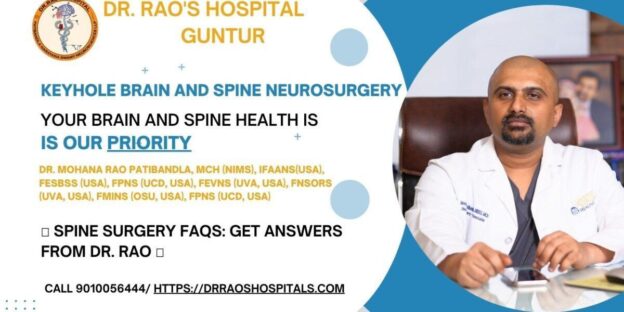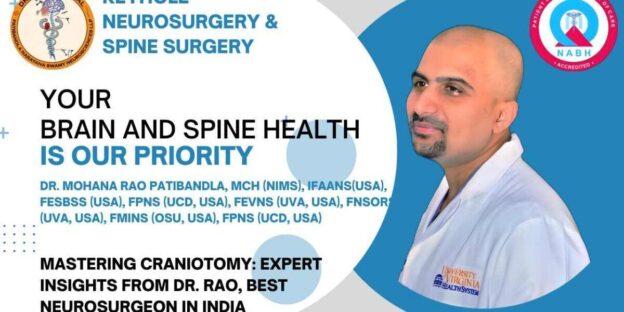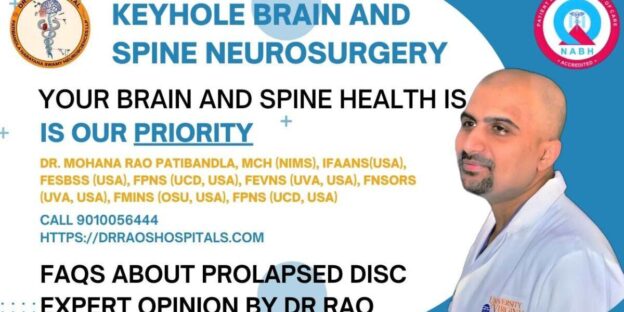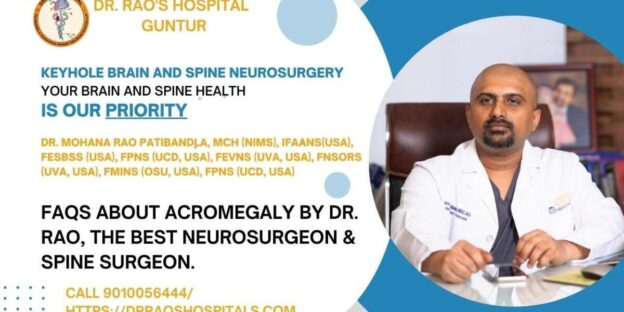Expert Brain, Spine & Endovascular Care at Dr. Rao’s Hospital
Introduction: Excellence in Brain and Spine Care at Dr. Rao’s Hospital
When it comes to specialized care in brain and spine health, finding the right medical professionals and facilities is paramount. In India, Dr. Rao’s Hospital in Guntur is a beacon of hope for patients requiring top-tier treatment. The hospital has become synonymous with cutting-edge neurosurgery, spine surgery, and endovascular procedures under the direction of renowned neurosurgeon Dr. Mohana Rao Patibandla. This comprehensive blog explores the key services and specialties offered at Dr. Rao’s Hospital, including minimally invasive techniques, and highlights why it is a leading destination for medical tourism. According to The Times of India coverage.
Rao’s Brain and Spine: A Center of Excellence
Dr. Rao’s Hospital, often called Rao’s Brain and Spine Center, is renowned for its cutting-edge neurological and spinal care approach. The hospital provides a full spectrum of services, from diagnosis to post-operative care, ensuring patients receive the highest standard of treatment. Dr. Rao’s expertise in brain and spine surgery has made the hospital a preferred choice for patients in Andhra Pradesh, across India, and internationally.
Brain & Spine Specialist: Expertise You Can Trust
At the heart of Dr. Rao’s Hospital is a team of highly qualified specialists who are dedicated to treating complex brain and spine conditions. As a Brain & Spine Specialist, Dr. Rao is known for his precision, skill, and patient-centric approach. He has successfully performed thousands of surgeries, utilizing the latest technology to achieve optimal outcomes. Whether it’s a brain tumor, spinal deformity, or a vascular disorder, Dr. Rao’s vast experience ensures that every patient receives personalized and effective care.
Guntur Brain and Spine Hospital: State-of-the-Art Facilities
Guntur Brain and Spine Hospital, part of Dr. Rao’s Hospital, is equipped with the latest medical technology, including advanced imaging systems, neuro-navigation, and minimally invasive surgical tools. This infrastructure supports various procedures, from routine surgeries to highly complex interventions. The hospital’s commitment to maintaining the highest standards in patient care has earned it a reputation as one of the leading centers for brain and spine surgery in India.
Spine Dr Name: Dr. Rao: A Leader in Spine Surgery
When discussing top spine surgeons, one name stands out—Dr. Rao. As a spine surgeon, Dr. Rao has pioneered several minimally invasive spine surgery techniques, significantly improving recovery times and reducing patient complications. His deep understanding of spinal anatomy and ability to address even the most challenging conditions make him a trusted name in spine care. Patients worldwide seek his expertise and confidence in his ability to deliver successful surgical outcomes.
Neuroscience Specialist: Cutting-edge Treatment for Complex Conditions
As a Neuroscience Specialist, Dr. Rao’s expertise extends beyond traditional neurosurgery. He is also a leading figure in the field of interventional neurology, offering treatments for conditions like stroke, aneurysms, and arteriovenous malformations (AVMs). His holistic approach to patient care, including a thorough understanding of the neurological system, allows for comprehensive treatment plans that address the symptoms and underlying causes of various neurological disorders.
Top Ranked Spine Surgeons: Global Recognition
Dr. Rao is recognized among the Top Ranked Spine Surgeons globally, a testament to his skill and dedication to advancing the field of spine surgery. His innovative techniques and commitment to patient safety have earned him accolades from peers and patients. This recognition is reflected in the numerous international conferences where Dr. Rao has been invited to share his expertise, solidifying his standing as a world-class surgeon.
Neuro Specialists: A Multi-Disciplinary Approach
The team at Dr. Rao’s Hospital includes a wide range of Neuro Specialists, each bringing their expertise to ensure comprehensive care. This multi-disciplinary approach means that patients benefit from the combined knowledge of neurologists, neurosurgeons, spine surgeons, and endovascular specialists. The collaboration among these experts allows for more accurate diagnoses, innovative treatment plans, and better overall patient outcomes.
Brain and Spine India: A Hub for Neurosurgical Excellence
India is emerging as a hub for advanced neurosurgical procedures, and Brain and Spine India centers like Dr. Rao’s Hospital are at the forefront of this transformation. With a focus on providing world-class care at affordable costs, Dr. Rao’s Hospital attracts patients from across the globe. The hospital’s emphasis on using minimally invasive techniques ensures that patients receive the most effective treatment with the least disruption to their lives. According to dnaindia
Brain and Spine Hospital OSU: A Benchmark for Quality
Dr. Rao’s training and collaboration with leading institutions such as the Brain and Spine Hospital at OSU (Ohio State University) have significantly influenced the level of care provided at his hospital. Integrating best practices from such prestigious institutions ensures that patients at Dr. Rao’s Hospital receive treatment that meets international standards. This commitment to excellence is one of the reasons why Dr. Rao’s Hospital is considered one of the best places for brain and spine surgery in India.
Neuro Spine Surgeon: Precision in Surgery
As a Neuro Spine Surgeon, Dr. Rao’s ability to perform highly precise and complex surgeries has transformed the lives of countless patients. His focus on minimally invasive techniques reduces the risk associated with surgery and accelerates the recovery process. Patients treated by Dr. Rao benefit from his meticulous approach, which ensures that every procedure is tailored to the individual’s specific needs.
Top 10 Spine Surgeons in the World: Dr. Rao’s Global Standing
Dr. Rao’s inclusion among the Top 10 Spine Surgeons in the World reflects his outstanding contributions to spine surgery. His innovative approaches and consistent track record of successful surgeries have set a new benchmark in spine care. Patients worldwide travel to Guntur to benefit from his expertise, knowing they are in the hands of one of the best surgeons globally.

Dr. Rao is the best neurosurgeon in Guntur, Andhra Pradesh, India, and World
Neurology Hospital Near Me: Accessible and Advanced Care
Dr. Rao’s Hospital in Guntur offers a convenient and highly advanced option for those searching for a Neurology Hospital Near Me. The hospital’s location, with its state-of-the-art facilities and expert medical staff, makes it an ideal choice for patients needing neurological and spine care. Whether you’re dealing with a complex neurological disorder or a spinal condition, Dr. Rao’s Hospital is equipped to provide the necessary care.
Neuro Hospital Near Me: Comprehensive Neurosurgical Services
When searching for a neuro hospital near me, it is essential to find a facility that offers comprehensive care. Dr. Rao’s Hospital provides full services, from diagnostics to postoperative care, ensuring patients receive the best possible treatment. The hospital’s focus on minimally invasive procedures and patient-centered care has made it a leader in neurosurgery and spine surgery.
Dr Neurologist Near Me: Expert Care Close to Home
For those seeking a Dr. Neurologist Near Me, Dr. Rao’s Hospital is an excellent choice. Dr. Rao’s expertise as a neurologist and neurosurgeon ensures that patients receive expert care close to home. His patient-centric approach and the latest medical technology make Dr. Rao’s Hospital a top choice for those needing neurological care in Andhra Pradesh and beyond.
Top Rated Spine Surgeons Near Me: Quality Care You Can Trust
Regarding finding the Top Rated Spine Surgeons Near Me, Dr. Rao’s Hospital stands out for its exceptional care and successful outcomes. Patients who have undergone surgery under Dr. Rao’s care consistently report high satisfaction levels, thanks to the hospital’s focus on minimally invasive techniques and comprehensive post-operative support. Whether you’re dealing with a herniated disc, spinal stenosis, or any other spinal condition, Dr. Rao’s Hospital offers the expertise you need for a successful recovery.
Dr. Rao: Neurosurgeon, Spine Surgeon & Endovascular Surgeon
Dr. Rao is not just a neurosurgeon but also a leading spine and endovascular surgeon. This unique combination of skills allows him to offer a wide range of treatments, from complex brain surgeries to minimally invasive spine procedures and advanced endovascular interventions. His ability to integrate these disciplines into a cohesive treatment plan ensures that patients receive the most effective care possible.
Best Interventional Neurologist in Andhra Pradesh: Dr. Rao’s Expertise
As the Best Interventional Neurologist in Andhra Pradesh, Dr. Rao is at the forefront of treating complex vascular conditions. His expertise in interventional neurology allows him to offer non-surgical treatments for conditions like aneurysms and strokes, providing patients with less invasive options that come with fewer risks and shorter recovery times. This focus on interventional techniques makes Dr. Rao’s Hospital a leader in neurological care.
Best Endovascular Neurosurgeon in Andhra Pradesh: Advanced Care at Dr. Rao’s Hospital
Dr. Rao is also recognized as the Best Endovascular Neurosurgeon in Andhra Pradesh, a title that reflects his advanced training and extensive experience in this specialized field. Endovascular neurosurgery is a rapidly evolving area, and Dr. Rao’s expertise ensures that patients have access to the latest and most effective treatments. Whether it’s a brain aneurysm or a stroke, Dr. Rao’s skill in endovascular procedures offers patients the best chance for a successful outcome.
Minimally Invasive Neurosurgery: Advanced Techniques for Better Outcomes
One of the hallmarks of Dr. Rao’s Hospital is its focus on Minimally Invasive Neurosurgery. These advanced techniques reduce the physical trauma of surgery, leading to quicker recovery times and less post-operative pain. Dr. Rao’s expertise in minimally invasive procedures ensures that patients receive the most effective treatment with the least disruption to their lives, making it a preferred choice for those seeking neurosurgical care.
Minimally Invasive Spine Surgery: Precision and Care
Minimally Invasive Spine Surgery is another area where Dr. Rao’s Hospital excels. These procedures, which involve smaller incisions and less damage to surrounding tissues, allow patients to recover more quickly and with fewer complications. Dr. Rao’s extensive experience in minimally invasive spine surgery means that patients benefit from his technical skills and commitment to achieving the best possible outcomes.
Affordable Medical Tourism: World-Class Care at Competitive Prices
Affordable medical tourism is a significant advantage for international patients who are choosing Dr. Rao’s Hospital. The hospital offers world-class care at prices often lower than in Western countries without compromising quality. This combination of affordability and excellence makes Dr. Rao’s Hospital a top destination for medical tourists seeking advanced brain and spine care.
Dr. Rao’s Hospital Guntur – The Best Brain, Spine, and Endovascular Center
In conclusion, Dr. Rao’s Hospital Guntur is the best brain, spine, and endovascular center in Andhra Pradesh. The hospital’s commitment to excellence, combined with Dr. Rao’s unparalleled expertise, ensures that patients receive the highest standard of care. Whether you’re dealing with a brain tumor, spinal condition, or vascular disorder, Dr. Rao’s Hospital is equipped to provide the comprehensive treatment you need for a successful recovery.
Conclusion: Why Choose Dr. Rao’s Hospital?
Choosing the right brain and spine surgery hospital is crucial, and Dr. Rao’s Hospital in Guntur stands out as a leading choice. With a focus on minimally invasive techniques, a team of top specialists, and a commitment to affordable medical tourism, Dr. Rao’s Hospital offers patients the best possible care. Whether you’re local to Andhra Pradesh or from abroad, you can trust Dr. Rao’s Hospital to provide the expert treatment you need for a successful outcome.
Dr. Rao’s Contact Information:

